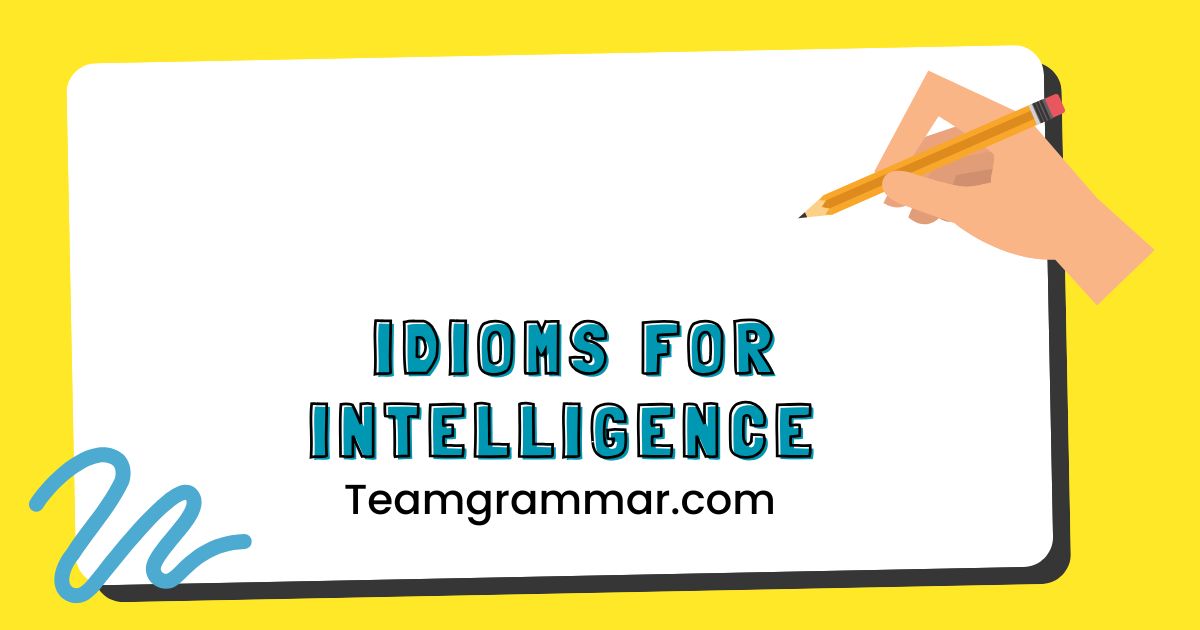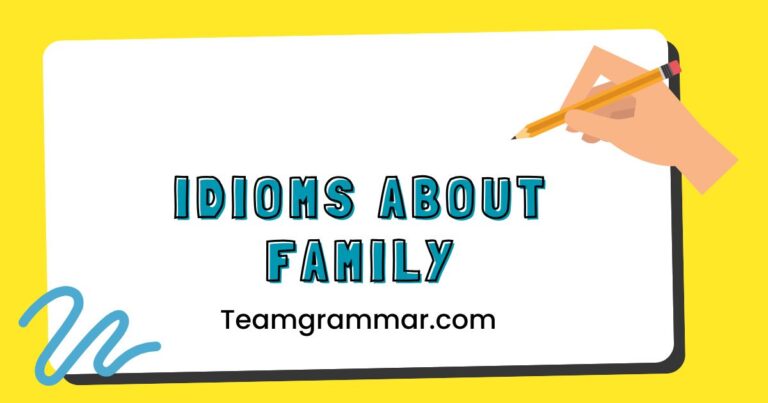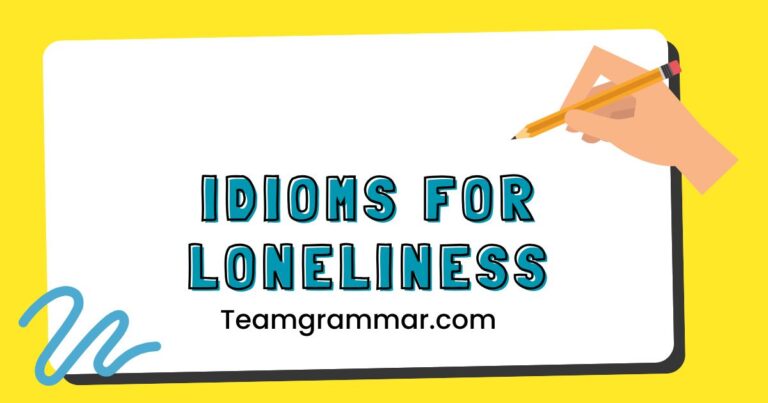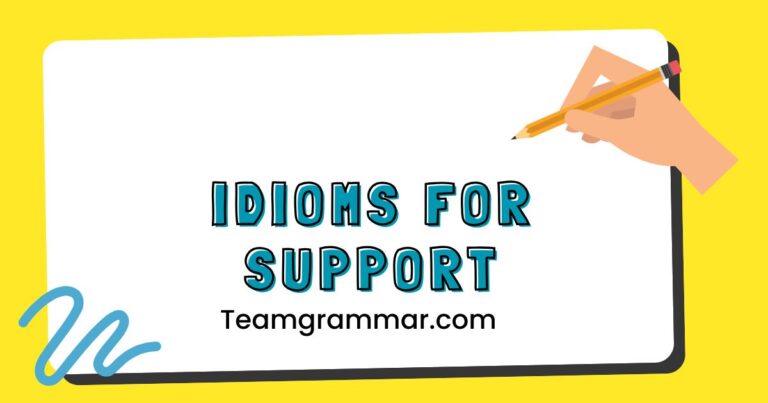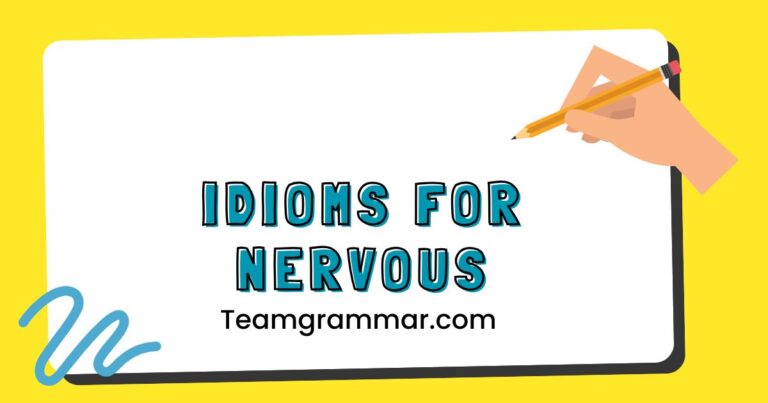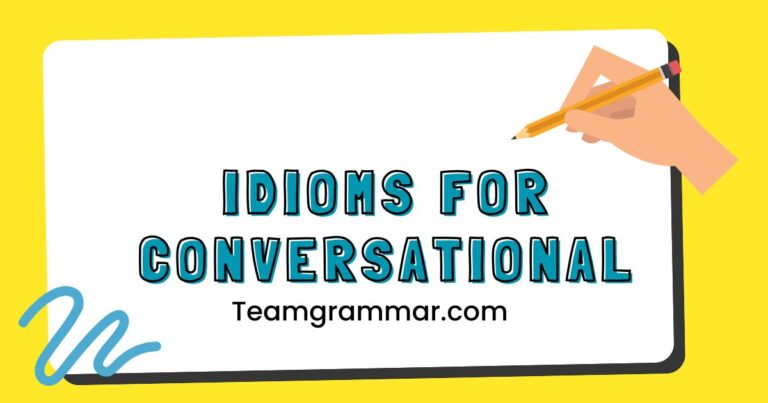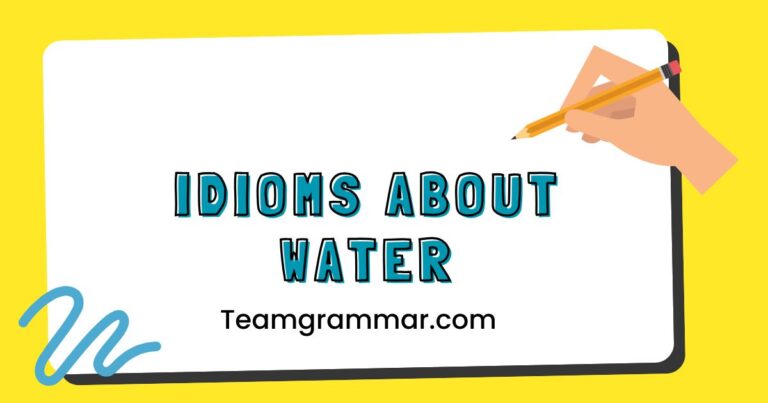34 Idioms for Intelligence: Mastering Smart Expressions in English
Understanding idioms related to intelligence and knowledge is essential for mastering the nuances of the English language. These expressions add color and depth to communication, allowing speakers to convey complex ideas in a concise and engaging manner.
This article explores a range of idioms that describe intelligence, learning, and wisdom, providing definitions, examples, and practical exercises to help you incorporate them into your everyday vocabulary. This is a valuable resource for English language learners, educators, and anyone looking to enhance their understanding of idiomatic expressions.
By learning these idioms, you will not only improve your comprehension of spoken and written English but also gain a deeper appreciation for the cultural context in which these expressions are used. This article is designed to provide a comprehensive guide to idioms for intelligence, making it an invaluable resource for anyone seeking to enhance their communication skills and cultural literacy.
Table of Contents
- Introduction
- Definition of Idioms for Intelligence
- Structural Breakdown of Idioms
- Types and Categories of Idioms for Intelligence
- Examples of Idioms for Intelligence
- Usage Rules for Idioms
- Common Mistakes When Using Idioms
- Practice Exercises
- Advanced Topics: The Cultural Context of Idioms
- Frequently Asked Questions
- Conclusion
Definition of Idioms for Intelligence
Idiomsare phrases or expressions whose meanings cannot be understood from the ordinary meanings of the individual words. Instead, the phrase has a figurative meaning that is unique to the expression.
Idioms related to intelligence specifically refer to ways of describing a person’s intellect, understanding, knowledge, or lack thereof. These idioms often convey cultural attitudes and perceptions about intelligence, making them valuable for understanding cultural nuances within the English language.
These idioms are used to describe everything from innate brilliance to acquired knowledge, from astute problem-solving skills to a complete lack of common sense. They provide a colorful and often humorous way to comment on someone’s intellectual capabilities or shortcomings.
Understanding these idioms is crucial for both comprehending and effectively communicating in English, as they are frequently used in both formal and informal contexts.
The function of these idioms is to add richness and depth to communication, allowing speakers to convey complex ideas in a concise and engaging way. They are often used to express opinions, judgments, or observations about a person’s intelligence or behavior.
By using idioms, speakers can also create a sense of shared understanding and cultural connection with their audience.
Structural Breakdown of Idioms
The structure of idioms can vary widely. Some idioms are simple phrases, while others are complex clauses.
Many idioms contain verbs, nouns, adjectives, and prepositions that, when combined, create a meaning that is different from the sum of their parts. It is essential to recognize that idioms are often fixed expressions, meaning that their word order and composition cannot be altered without changing or losing their meaning.
For example, the idiom “two heads are better than one” consists of nouns, verbs, and a comparative structure to convey the idea that collaboration is more effective than individual effort. The structure of this idiom is fixed; changing the order or substituting words would alter the meaning or render the idiom nonsensical.
Similarly, the idiom “not the sharpest tool in the shed” uses a metaphor to describe someone who lacks intelligence. The structural elements—a negative phrase, a superlative adjective, and a metaphorical comparison—work together to create the idiomatic meaning.
Understanding the structural elements of idioms can help learners recognize and interpret them more easily. By paying attention to the specific words and their arrangement, learners can begin to decipher the underlying meaning and context of the idiom.
While the individual words may not provide a literal interpretation, the overall structure often provides clues to the figurative meaning.
Types and Categories of Idioms for Intelligence
Idioms for intelligence can be categorized based on the specific aspect of intelligence they describe. Here are several categories:
Idioms Describing Learning
These idioms relate to the process of acquiring knowledge or skills. They often describe the act of studying, understanding, or mastering new information.
Idioms Describing Wisdom
These idioms refer to the ability to make sound judgments and decisions based on experience and knowledge. They often describe someone who is insightful, perceptive, and thoughtful.
Idioms Describing Cleverness
These idioms denote quick-wittedness, ingenuity, and the ability to solve problems creatively. They often describe someone who is sharp, astute, and resourceful.
Idioms Describing Knowledge
These idioms refer to the possession of information, facts, and understanding. They often describe someone who is well-informed, knowledgeable, and erudite.
Idioms Describing a Lack of Intelligence
These idioms describe a deficiency in intellect, understanding, or common sense. They often convey criticism, humor, or gentle teasing.
Examples of Idioms for Intelligence
Here are some examples of idioms for intelligence, categorized by their meaning:
Examples of Idioms Describing Learning
The following table provides examples of idioms that describe learning, along with their meanings and example sentences. Understanding these idioms can help you express the process of acquiring knowledge in a more colorful and nuanced way.
| Idiom | Meaning | Example Sentence |
|---|---|---|
| Hit the books | To study very hard | I need to hit the books if I want to pass this exam. |
| Learn by heart | To memorize something perfectly | The students had to learn the poem by heart for the recitation. |
| Burning the midnight oil | Studying or working late into the night | She’s been burning the midnight oil to finish her dissertation. |
| Pick up | To learn something without formal study | He picked up Spanish while traveling in Mexico. |
| Get the hang of | To learn how to do something | It took a while, but I finally got the hang of coding. |
| Brush up on | To review or improve one’s knowledge of something | I need to brush up on my French before my trip to Paris. |
| Major in | To specialize in a particular subject at university | She decided to major in biology because she loves science. |
| Minor in | To study a subject as a secondary focus at university | He’s majoring in computer science, but he’s minoring in mathematics. |
| Pass with flying colors | To pass an exam or test very easily and with a high score | She passed the exam with flying colors, scoring 98%. |
| Cut class | To skip a class without permission | The students decided to cut class and go to the beach. |
| Play hooky | To skip school or work without permission | The students decided to play hooky and go to the beach. |
| Bone up on | To study something intensively in preparation for a test or exam | I need to bone up on my history before the quiz tomorrow. |
| Cram | To study intensively over a short period of time | He had to cram for the final exam because he hadn’t studied all semester. |
| Learn the ropes | To learn the basics of a job or task | The new employee is still learning the ropes. |
| Show someone the ropes | To teach someone the basics of a job or task | The manager will show the new employee the ropes. |
| Read up on | To do research on a particular topic | I need to read up on the history of the city before my trip. |
| Get a handle on | To understand or gain control of something | It took a while, but I finally got a handle on the new software. |
| Burn the candle at both ends | To work or study excessively, leading to exhaustion | She’s been burning the candle at both ends trying to finish her project. |
| Go back to the drawing board | To start over from the beginning after a failed attempt | The project didn’t work, so we had to go back to the drawing board. |
| Pass the test | To successfully complete an exam or assessment | He studied diligently and managed to pass the test with a good grade. |
| Fail the test | To not successfully complete an exam or assessment | Unfortunately, he didn’t study enough and failed the test. |
| Make the grade | To meet the required standard or level of performance | She worked hard to make the grade and get into her dream university. |
| Hit the books | To study very hard | I need to hit the books if I want to pass this exam. |
| Learn by rote | To memorize something by repetition, without necessarily understanding it | The students learn the multiplication tables by rote. |
Examples of Idioms Describing Wisdom
The following table provides examples of idioms that describe wisdom, along with their meanings and example sentences. These idioms often reflect the value of experience and thoughtful consideration in making sound judgments.
| Idiom | Meaning | Example Sentence |
|---|---|---|
| An old head on young shoulders | Someone who is wise beyond their years | Despite being only 16, she’s an old head on young shoulders. |
| As wise as Solomon | Extremely wise and knowledgeable | The judge was as wise as Solomon in resolving the dispute. |
| Learn the hard way | To learn from difficult or painful experiences | He learned the hard way that you can’t trust everyone. |
| A word to the wise | A warning or piece of advice to someone who is intelligent enough to understand | A word to the wise: don’t invest all your money in one stock. |
| Wisdom of Solomon | Exceptional wisdom and judgment | The negotiator showed the wisdom of Solomon in resolving the conflict. |
| Have seen the light | To come to a realization or understanding | After much deliberation, he finally saw the light and changed his mind. |
| Take something with a grain of salt | To not take something too seriously or literally | You should take his advice with a grain of salt; he’s not always right. |
| Look before you leap | To consider the consequences before taking action | Remember to look before you leap when making important decisions. |
| Cross that bridge when you come to it | To deal with a problem when it arises, rather than worrying about it in advance | We’ll cross that bridge when we come to it; there’s no point in worrying about it now. |
| Experience is the best teacher | Learning from personal experiences is more effective than learning from books or lectures | He made a mistake, but experience is the best teacher. |
| Age before beauty | A polite expression used when letting someone older go first | “Age before beauty,” she said, gesturing for her grandmother to enter the room first. |
| Everything in moderation | Not doing too much of anything is the key to a balanced life | He believes in everything in moderation, including work and leisure. |
| Forewarned is forearmed | Being aware of a potential problem gives you an advantage | They told him about the risks, because forewarned is forearmed. |
| Hindsight is 20/20 | It’s easier to understand a situation after it has happened | Hindsight is 20/20; we should have invested in that company years ago. |
| If it ain’t broke, don’t fix it | If something is working well, there’s no need to change it | The old system is still working fine, so if it ain’t broke, don’t fix it. |
| Better safe than sorry | It’s better to be cautious than to take risks and regret it later | We should bring extra supplies, better safe than sorry. |
| Don’t count your chickens before they hatch | Don’t make plans based on something that hasn’t happened yet | We shouldn’t celebrate the deal until it’s finalized; don’t count your chickens before they hatch. |
| Don’t put all your eggs in one basket | Don’t risk everything on a single venture | Diversify your investments; don’t put all your eggs in one basket. |
| Fool me once, shame on you; fool me twice, shame on me | You are responsible if someone deceives you more than once | He tricked me the first time, but fool me once, shame on you; fool me twice, shame on me. |
| Great minds think alike | An expression used when two people have the same idea | “I was just thinking that!” “Great minds think alike!” |
| Knowledge is power | Having information gives you an advantage | He believes that knowledge is power, so he’s always learning new things. |
| Practice makes perfect | Regular practice is the key to mastering a skill | Keep practicing your scales; practice makes perfect. |
| Still waters run deep | A quiet or reserved person may have a lot of intelligence or knowledge | He doesn’t talk much, but still waters run deep. |
| The pen is mightier than the sword | Words and ideas are more powerful than violence | He chose to write an article instead of protesting violently, believing that the pen is mightier than the sword. |
Examples of Idioms Describing Cleverness
The following table provides examples of idioms that describe cleverness, along with their meanings and example sentences. These idioms highlight the ability to think quickly and solve problems effectively.
| Idiom | Meaning | Example Sentence |
|---|---|---|
| Sharp as a tack | Very intelligent and quick-witted | She’s sharp as a tack and always comes up with brilliant ideas. |
| Quick on the uptake | Able to understand things quickly | He’s very quick on the uptake and learns new concepts easily. |
| Street smart | Having the knowledge and skills to survive in a difficult environment | Growing up in the city, he became very street smart. |
| Brainy | Intelligent and academic | She’s a brainy student who always gets top marks. |
| Have a good head on one’s shoulders | To be intelligent and sensible | He has a good head on his shoulders and makes wise decisions. |
| Think outside the box | To think creatively and unconventionally | To solve the problem, we need to think outside the box. |
| Resourceful | Able to find clever ways to overcome difficulties | She’s very resourceful and can always find a solution to any problem. |
| Have one’s wits about one | To be alert and able to think quickly | You need to have your wits about you when dealing with difficult customers. |
| On the ball | Alert, competent, and efficient | She’s always on the ball and gets things done quickly. |
| Ahead of the curve | More advanced or innovative than others | The company is ahead of the curve in developing new technologies. |
| Always land on one’s feet | To always recover from difficult situations | No matter what happens, she always lands on her feet. |
| Astute | Having or showing an ability to accurately assess situations or people and turn this to one’s advantage | He was an astute businessman who made a fortune. |
| Brainwave | A sudden clever idea | He had a brainwave and came up with a brilliant solution. |
| Cunning | Skillfully deceptive | The cunning fox outsmarted the farmer. |
| Ingenious | Clever, original, and inventive | The architect designed an ingenious system for water conservation. |
| Intricate | Very complicated or detailed | The puzzle was very intricate and required a lot of thought. |
| Keep one’s eyes peeled | To watch carefully for something | We need to keep our eyes peeled for any signs of danger. |
| Nimble | Quick and light in movement or action; agile | The nimble dancer moved gracefully across the stage. |
| Perceptive | Having or showing sensitive insight | She’s very perceptive and can understand people’s feelings easily. |
| Savvy | Having or showing perception, comprehension, or shrewdness, especially in practical matters | He’s a savvy investor who knows how to make money. |
| Shrewd | Having or showing sharp powers of judgment; astute | The shrewd negotiator got the best deal for his client. |
| Slick | Operating or performing skillfully and effectively, typically in a way that suggests insincerity | He’s a slick salesman who can sell anything. |
| Smooth operator | A person who is charming and persuasive | He’s a smooth operator who can get what he wants. |
| Streetwise | Having the experience and knowledge necessary to deal with the potential difficulties or dangers of life in an urban environment | She’s streetwise and knows how to handle herself in any situation. |
| Wily | Skilled at gaining an advantage, especially deceitfully | The wily politician managed to win the election. |
Examples of Idioms Describing Knowledge
The following table provides examples of idioms that describe knowledge, along with their meanings and example sentences. These idioms often describe someone who is well-informed and possesses a deep understanding of various subjects.
| Idiom | Meaning | Example Sentence |
|---|---|---|
| Know something inside out | To know something very well | He knows the car engine inside out. |
| Well-read | Having read many books and having a lot of knowledge | She’s very well-read and can discuss a wide range of topics. |
| In the know | Having access to information that is not generally known | He’s in the know about the company’s future plans. |
| Have a wealth of knowledge | To have a lot of knowledge about a particular subject | She has a wealth of knowledge about art history. |
| Know one’s stuff | To be competent and knowledgeable in one’s field | He really knows his stuff when it comes to computer programming. |
| Be an open book | To be easy to understand or know | He’s an open book; you always know what he’s thinking. |
| Have a good grasp of | To have a good understanding of something | She has a good grasp of the English language. |
| A walking encyclopedia | Someone who knows a lot about many subjects | He’s a walking encyclopedia when it comes to history. |
| Be up on | To be well-informed about something | She’s up on all the latest trends in fashion. |
| Have at one’s fingertips | To have ready access to information | He has all the data at his fingertips. |
| Be versed in | To be knowledgeable about something | She is versed in classical literature. |
| Conversant with | Familiar with and knowledgeable about | He is conversant with the latest developments in technology. |
| Erudite | Having or showing great knowledge or learning | The professor was known for his erudite lectures. |
| Familiar with | Having a good knowledge of something | She is familiar with the local customs and traditions. |
| Have extensive knowledge of | To know a lot about a particular subject | He has extensive knowledge of marine biology. |
| Informed | Having or showing knowledge of a particular subject or fact | The article was well informed and provided valuable insights. |
| Know the score | To understand the true state of affairs | He knows the score and is aware of the challenges ahead. |
| Learned | Having or showing great knowledge or learning; erudite | The learned scholar presented his research at the conference. |
| Possess a deep understanding of | To have a thorough and comprehensive knowledge of something | She possesses a deep understanding of quantum physics. |
| Proficient in | Competent or skilled in doing or using something | She is proficient in several programming languages. |
| Scholarly | Involving or relating to serious academic study | The book was a scholarly work that explored the topic in depth. |
| Skilled in | Having or showing the knowledge and ability to do something well | He is skilled in carpentry and can build anything. |
| Well-acquainted with | Having a good knowledge of something | She is well-acquainted with the local history and culture. |
| Well-informed | Having or showing knowledge of a particular subject or fact | The report was well-informed and provided a comprehensive overview. |
| Wise to | Aware of something, especially something bad or disadvantageous | He is wise to the company’s tactics. |
Examples of Idioms Describing a Lack of Intelligence
The following table provides examples of idioms that describe a lack of intelligence, along with their meanings and example sentences. These idioms often convey humor or gentle criticism.
| Idiom | Meaning | Example Sentence |
|---|---|---|
| Not the sharpest tool in the shed | Not very intelligent | He’s a nice guy, but he’s not the sharpest tool in the shed. |
| A few bricks short of a load | Not very intelligent; somewhat crazy | I think he’s a few bricks short of a load. |
| Not playing with a full deck | Not very intelligent; somewhat crazy | She’s not playing with a full deck, if you know what I mean. |
| Dim-witted | Stupid or unintelligent | He’s a bit dim-witted, but he means well. |
| Slow on the uptake | Takes a long time to understand things | He’s a bit slow on the uptake, so you have to explain things carefully. |
| Dense | Slow to understand; stupid | He’s so dense; it takes him forever to get the point. |
| Out to lunch | Not paying attention; not aware of what’s going on | He seems to be out to lunch most of the time. |
| Not all there | Not fully mentally present or aware | She’s not all there today; she seems distracted. |
| Thick as a brick | Very stupid | He’s as thick as a brick; he can’t understand anything. |
| As dumb as a doornail | Extremely stupid | He’s as dumb as a doornail; I don’t know how he passed the exam. |
| Brainless | Stupid; lacking intelligence | That was a brainless thing to do. |
| Clueless | Having no understanding of a situation or subject | He’s completely clueless about what’s going on. |
| Empty-headed | Silly and lacking intelligence | She’s pretty, but a bit empty-headed. |
| Harebrained | Foolish and impractical | That’s a harebrained idea. |
| Idiotic | Very stupid | That was an idiotic thing to say. |
| Nitwit | A stupid or foolish person | He’s such a nitwit. |
| Numbskull | A stupid person | He’s a real numbskull. |
| Scatterbrained | Disorganized and lacking concentration | She’s a bit scatterbrained, but she means well. |
| Simpleton | A person considered to be foolish or unintelligent | He’s a simpleton who can’t understand anything complex. |
| Slow-witted | Slow to understand things | He’s a bit slow-witted, so you have to be patient with him. |
| Stupid as a post | Extremely stupid | He’s as stupid as a post. |
| Unintelligent | Not intelligent | He’s not unintelligent, just inexperienced. |
| Vacant | Having or showing no intelligence or interest | He has a vacant expression on his face. |
| Wooden-headed | Stupid; lacking intelligence | He’s a bit wooden-headed, but he’s a hard worker. |
| Airhead | A stupid or frivolous person | She’s such an airhead. |
Usage Rules for Idioms
Using idioms correctly requires understanding their specific meaning and context. Here are some key rules to follow:
- Understand the Meaning: Always ensure you know the precise meaning of the idiom before using it. Misusing an idiom can lead to confusion or miscommunication.
- Consider the Context: Idioms are often informal and may not be appropriate for formal settings. Consider your audience and the situation before using an idiom.
- Use the Correct Form: Idioms are fixed expressions, so it’s essential to use the correct wording and grammar. Altering the words or structure can change or lose the meaning.
- Be Aware of Cultural Differences: Idioms can be culturally specific, so what is common in one culture may not be understood in another.
- Practice: The best way to master idioms is to practice using them in conversation and writing. The more you use them, the more natural they will become.
Additionally, pay attention to the nuances of each idiom. Some idioms are used to express humor, while others are used to convey criticism or advice.
Understanding these nuances will help you use idioms effectively and appropriately.
Also, be mindful of the connotations that idioms carry. Some idioms can be offensive or insensitive, particularly those that describe a lack of intelligence.
It is important to use these idioms with caution and consider the potential impact on your audience.
Common Mistakes When Using Idioms
Here are some common mistakes to avoid when using idioms:
- Literal Interpretation: Interpreting idioms literally instead of understanding their figurative meaning.
- Incorrect Wording: Changing the words or structure of an idiom, altering its meaning.
- Inappropriate Context: Using informal idioms in formal settings
or vice versa.
- Cultural Misunderstanding: Using idioms that are not understood or are offensive in certain cultures.
- Overuse: Using too many idioms in a conversation or writing, making it sound unnatural or forced.
For example, a common mistake is to misunderstand the idiom “hit the books” as physically striking books, rather than understanding it to mean “to study hard.” Similarly, using the idiom “a few sandwiches short of a picnic” in a formal business presentation would be inappropriate, as it is a colloquial expression used to describe someone who is not very intelligent.
To avoid these mistakes, always double-check the meaning and usage of an idiom before using it. Pay attention to how native speakers use idioms in different contexts, and practice using them yourself to become more comfortable and confident.
Practice Exercises
Test your understanding of idioms for intelligence with these exercises:
Exercise 1: Fill in the Blanks
Fill in the blanks with the appropriate idiom from the list below:
Idiom List:
- Hit the books
- An old head on young shoulders
- Sharp as a tack
- Not the sharpest tool in the shed
- Learn by heart
- In the know
- He’s ____________________; he always knows what’s going on before anyone else.
- She’s ____________________; she understands complex concepts quickly.
- I need to ____________________ if I want to pass my exams.
- Despite his young age, he’s ____________________.
- He’s a nice guy, but he’s ____________________.
- The students had to ____________________ the poem for the recitation.
Answers:
- He’s in the know; he always knows what’s going on before anyone else.
- She’s sharp as a tack; she understands complex concepts quickly.
- I need to hit the books if I want to pass my exams.
- Despite his young age, he’s an old head on young shoulders.
- He’s a nice guy, but he’s not the sharpest tool in the shed.
- The students had to learn by heart the poem for the recitation.
Exercise 2: Matching Idioms to Definitions
Match the idioms in the left column with their definitions in the right column:
| Idiom | Definition |
|---|---|
| 1. Burning the midnight oil | A. Not very intelligent |
| 2. Wisdom of Solomon | B. To think creatively and unconventionally |
| 3. Think outside the box | C. Extremely wise and fair judgment |
| 4. Not playing with a full deck | D. Studying or working late into the night |
Answers:
| Idiom | Definition |
|---|---|
| 1. Burning the midnight oil | D. Studying or working late into the night |
| 2. Wisdom of Solomon | C. Extremely wise and fair judgment |
| 3. Think outside the box | B. To think creatively and unconventionally |
| 4. Not playing with a full deck | A. Not very intelligent |
Exercise 3: Using Idioms in Sentences
Use the following idioms in original sentences to demonstrate your understanding of their meaning:
- Quick on the uptake
- Have a good head on one’s shoulders
- Know something inside out
- A few bricks short of a load
- Well-read
Example Answers:
- She is so quick on the uptake that she grasped the complex theory in minutes.
- He has a good head on his shoulders, always making sound and responsible decisions.
- He knows the computer system inside out, so he’s the one to ask for technical support.
- I think he’s a few bricks short of a load because he keeps proposing these ridiculous plans.
- She is well-read and can discuss almost any literary topic intelligently.
Advanced Topics: The Cultural Context of Idioms
Idioms are deeply embedded in culture and reflect the values, beliefs, and history of a society. Understanding the cultural context of idioms is essential for using them appropriately and avoiding misunderstandings.
For example, idioms related to intelligence can reveal cultural attitudes toward education, wisdom, and intellectual ability.
In some cultures, wisdom is highly valued and associated with age and experience, while in others, cleverness and innovation are more prized. These cultural differences can be reflected in the idioms used to describe intelligence.
Additionally, some idioms may have historical origins that provide insight into their meaning and usage.
For example, the idiom “burning the midnight oil” reflects a time when studying late at night required using oil lamps, highlighting the dedication and effort required for learning. Similarly, the idiom “wisdom of Solomon” references the biblical King Solomon, known for his wise and just rulings, underscoring the importance of sound judgment and fairness.
By exploring the cultural context of idioms, learners can gain a deeper appreciation for the richness and complexity of the English language. This understanding can also help them communicate more effectively and sensitively in diverse cultural settings.
Frequently Asked Questions
Conclusion
Mastering idioms for intelligence is a valuable skill for anyone seeking to enhance their understanding and use of the English language. These expressions add color, depth, and nuance to communication, allowing speakers to convey complex ideas in a concise and engaging manner.
By learning the definitions, usage rules, and cultural contexts of idioms, you can improve your comprehension of spoken and written English, as well as your ability to communicate effectively in diverse cultural settings.
Continue to practice using idioms in your everyday vocabulary, and pay attention to how native speakers use them in different contexts. With time and effort, you will become more comfortable and confident in your use of idioms, and you will be able to express yourself with greater clarity and creativity.

